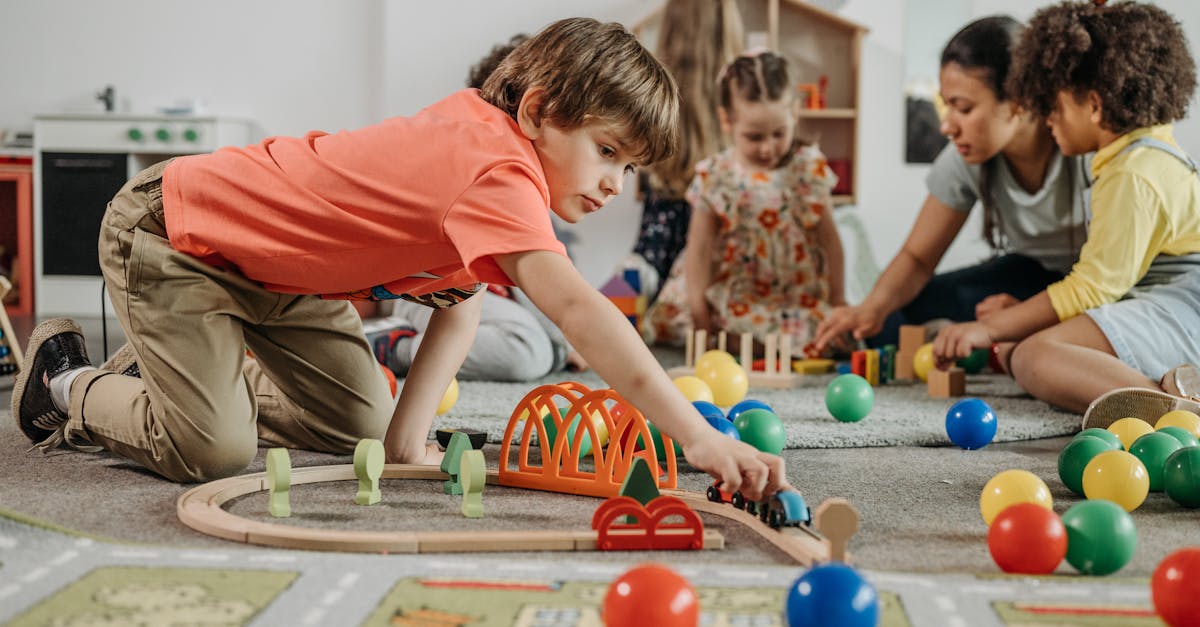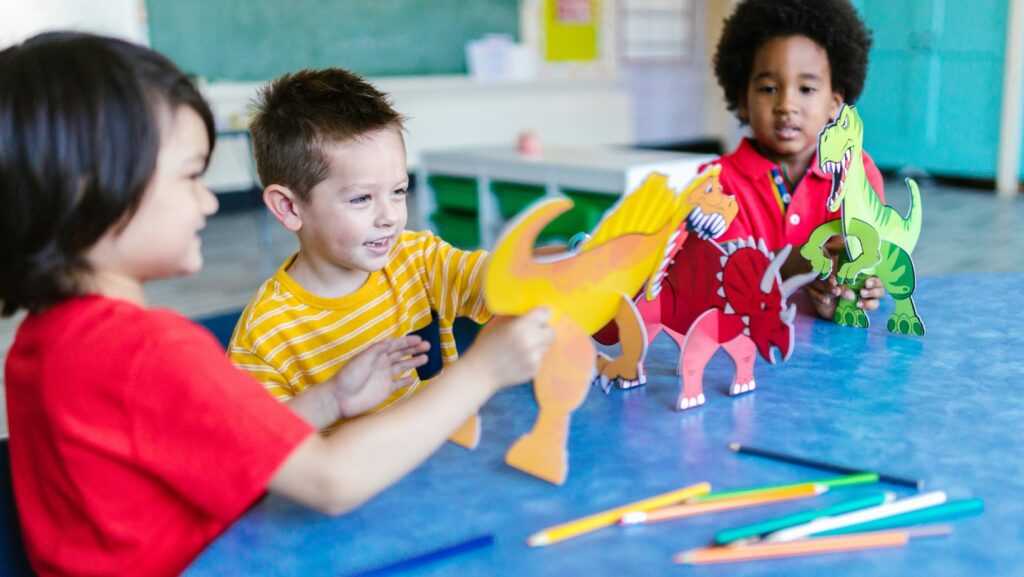Child development is a journey that extends far beyond physical growth. It encompasses cognitive, emotional, social, and creative dimensions, all of which are vital for helping children become well-rounded, resilient, and confident individuals. As caregivers, parents, and educators, our role is not merely to guide children but to create environments that nurture their innate curiosity and potential. While there is no one-size-fits-all approach, a blend of creativity, empathy, and practical strategies can significantly enhance a child’s development.
Understanding the Foundations of Child Development
Before exploring creative strategies, it is crucial to understand the key areas of child development:
- Cognitive Development: This includes thinking, problem-solving, memory, and decision-making. Stimulating a child’s mind early fosters critical thinking and learning skills.
- Emotional Development: Children learn to recognize and manage their emotions, develop empathy, and build self-esteem.
- Social Development: Interaction with peers, family, and community shapes communication skills, cooperation, and adaptability.
- Physical Development: Gross and fine motor skills, coordination, and overall health form the foundation for active learning and exploration.
- Creative Development: Imagination, artistic expression, and innovative thinking are essential for self-expression and problem-solving.
A holistic approach to supporting child development considers all these dimensions while embracing the child’s individuality.
Encourage Curiosity Through Exploration
Children are naturally curious, and nurturing this trait can significantly enhance cognitive and creative growth. Encourage exploration both indoors and outdoors. Creative and caring childcare centres often provide environments where children can safely experiment, explore, and discover new interests.
- Nature Walks: Outdoor experiences expose children to new sights, sounds, and textures. Encourage them to collect leaves, observe insects, or track the weather. These activities stimulate curiosity and teach observational skills.
- Hands-On Experiments: Simple science experiments, such as mixing baking soda and vinegar or growing plants from seeds, allow children to ask questions, hypothesize, and see real-world results.
- Sensory Play: Engage multiple senses with activities like sand play, water experiments, or textured art projects. Sensory experiences develop fine motor skills and cognitive processing.
Curiosity-driven learning helps children see the world as a place full of questions waiting to be answered, which builds a lifelong love for learning.
Foster Emotional Intelligence
Emotional development is just as important as intellectual growth. Children who understand and express their feelings are better equipped to handle challenges and form positive relationships.
- Label Emotions: Help children identify their feelings using words like happy, frustrated, excited, or anxious. This teaches emotional literacy.
- Model Empathy: Demonstrate understanding and compassion in your interactions. Children learn empathy by observing adults respond kindly to others.
- Create Safe Spaces: Encourage open communication where children feel comfortable expressing thoughts and fears without judgment. Journals, art, or storytelling can serve as emotional outlets.
By supporting emotional growth, children develop resilience, self-regulation, and the ability to navigate social situations with confidence.
Promote Social Skills Through Collaborative Play
Play is more than entertainment; it is a critical avenue for social learning. Through collaborative play, children practice negotiation, sharing, and conflict resolution.
- Group Activities: Encourage board games, team sports, or cooperative art projects that require taking turns and listening to others.
- Role-Playing: Pretend play, such as acting out daily routines or imagining different careers, helps children understand perspectives and develop empathy.
- Community Engagement: Involvement in local clubs, libraries, or volunteer activities teaches social responsibility and cooperation.
Fostering social skills early equips children to form meaningful relationships and navigate diverse environments with confidence.
Encourage Creativity Through Arts and Imagination
Creative expression is essential for developing problem-solving skills and emotional intelligence. Children benefit from activities that allow them to explore ideas without fear of judgment.
- Art and Craft: Encourage drawing, painting, sculpture, or DIY projects. Art promotes fine motor skills, patience, and imaginative thinking.
- Music and Dance: Playing instruments, singing, or dancing enhances auditory skills, rhythm, and physical coordination.
- Storytelling and Writing: Encourage children to create their own stories or journals. This strengthens language skills and fosters imagination.
Creative activities help children see multiple solutions to a problem, express emotions constructively, and build self-confidence.
Integrate Learning Into Everyday Life
Children learn best when education is practical, engaging, and relevant. Integrating learning into daily routines turns ordinary moments into growth opportunities.
- Cooking Together: Measuring ingredients teaches math, while following recipes develops sequencing skills and responsibility.
- Nature Journals: Documenting observations during walks or garden activities reinforces science and literacy skills.
- Shopping Lessons: Involve children in budgeting or comparing prices to develop math and critical thinking skills.
Practical learning makes knowledge tangible, helping children understand the real-world application of skills.

Prioritize Physical Activity
Physical health and movement are closely tied to cognitive and emotional development. Active children tend to have better focus, mood regulation, and overall well-being.
- Outdoor Play: Encourage running, climbing, or biking, which strengthens gross motor skills and endurance.
- Mind-Body Activities: Yoga, stretching, or tai chi promotes balance, flexibility, and mindfulness.
- Sports and Games: Team sports teach discipline, coordination, and social cooperation while providing an outlet for energy.
A strong body supports a strong mind, making physical activity an essential aspect of holistic child development.
Establish Consistent Routines
Children thrive on structure, which provides a sense of security and stability. Consistent routines help children anticipate expectations, manage time, and develop self-discipline.
- Sleep Schedules: Adequate rest is essential for cognitive processing and emotional regulation.
- Study and Play Balance: Structured periods for homework, creative play, and relaxation prevent burnout and foster focus.
- Household Responsibilities: Assign age-appropriate chores to cultivate responsibility and a sense of contribution.
Routines create a supportive environment where children can explore and grow confidently.
Celebrate Individual Strengths
Every child develops at their own pace, and recognizing individual strengths encourages self-esteem and motivation.
- Tailored Activities: Observe a child’s interests and design activities that align with their passions, whether it’s music, sports, science, or art.
- Positive Reinforcement: Praise effort rather than just outcomes. Highlighting perseverance fosters resilience and a growth mindset.
- Encourage Autonomy: Allow children to make age-appropriate decisions to develop independence and problem-solving skills.
Celebrating uniqueness nurtures confidence, creativity, and the belief that their contributions matter.
Conclusion
Supporting child development requires a thoughtful, holistic approach that combines curiosity, creativity, emotional intelligence, social skills, and practical learning. By fostering an environment that encourages exploration, emotional growth, social engagement, creative expression, physical activity, and routine, caregivers can provide children with the tools to thrive. Most importantly, nurturing growth is about balance—guiding without controlling, observing without judging, and celebrating both milestones and efforts. Through patience, creativity, and empathy, we can help children not only reach their potential but also develop a lifelong love of learning, self-expression, and personal growth.

